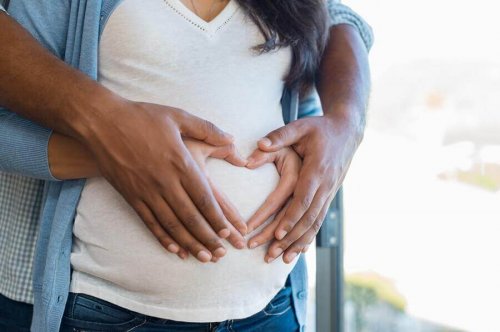Factors that Influence Time of Conception and Babies' Development

Women’s physical, emotional, and social well-being influence the time of conception and the baby’s development.
Many women start taking better care of themselves when they find out they’re pregnant. However, the truth is that life begins before the future mother realizes she’s pregnant.
How is a baby conceived?
The ovaries release an egg approximately 14 days after the start of each menstrual cycle. This is known as the ovulation process. If you have sex during this period, it’s very likely that the male sperm will fertilize your egg, resulting in a pregnancy.
After the fertilization, the embryo is implanted in the uterus and cell division begins. Although this stage is imperceptible, it happens at an incredible speed inside the woman’s body.
Does the time of conception affect the baby’s development?
The egg and sperm are the necessary ingredients to make a baby, which should be in good condition because the time of conception affects the future baby.
These basic components may suffer morphological and genetic alterations for various reasons.
The egg
When the egg is of poor quality, the process can be interrupted or altered to the point that the baby may be born with different problems. In women, the best-known causes are:
- Pregnancy after the age of 35.
- Polycystic ovaries.
- Cancer treatments.
A good quality and quantity of eggs ensure successful fertilization and a viable embryo. The egg must be energetic, have appropriate chromosomes, and be able to combine with the sperm so the embryo can grow normally.
The sperm
The sperm contributes 50% of the baby’s genetic makeup. A man’s semen may be affected for the following reasons:
- Sports practice.
- Frequent consumption of junk food.
- Substance abuse.

Defective sperm can lead to miscarriage. Chromosomal abnormalities of the sperm negatively affect the embryo.
Factors that negatively affect reproductive health
Reproductive health clearly affects the time of conception and the unborn baby. The main factors are diet, emotional disorders, underlying diseases, medical treatments, family history, and genetic inheritance.
Alcohol and drug abuse may also have harmful consequences.
The woman’s body should be prepared even before pregnancy (preconception) for this process to be carried out effectively.
Poor nutrition
Proper nutrition promotes good overall health, especially of the reproductive organs. Omega-3 fatty acids, iron, and folic acid are essential nutrients for conception. Low levels of these vitamins at conception cause many serious spinal cord problems
Both parents need to team up for the new task. It’s necessary for them to improve their habits and lifestyle during preconception.
The woman’s emotional state
The desire to become pregnant can cause anxiety, which can make it harder to conceive a baby. Likewise, relationship conflicts, poor economic conditions, or poor health also cause excessive worries that inhibit the process of conception.
Substance abuse
If a woman abuses alcohol or drugs before becoming pregnant and during the first four months of pregnancy, there’s a risk of conceiving a baby with obesity or type 2 diabetes. Quitting once the woman becomes aware of the pregnancy won’t really change the prognosis.

In case of genetic diseases, infertility, or aggressive medical treatments, therapeutic options can help achieve pregnancy.
Having a baby is a big responsibility that will change a couple’s life. Therefore, it’s necessary to think positively and have family support, a defined plan, and patience.
All the things we mentioned in this article influence the time of conception and the baby’s development.